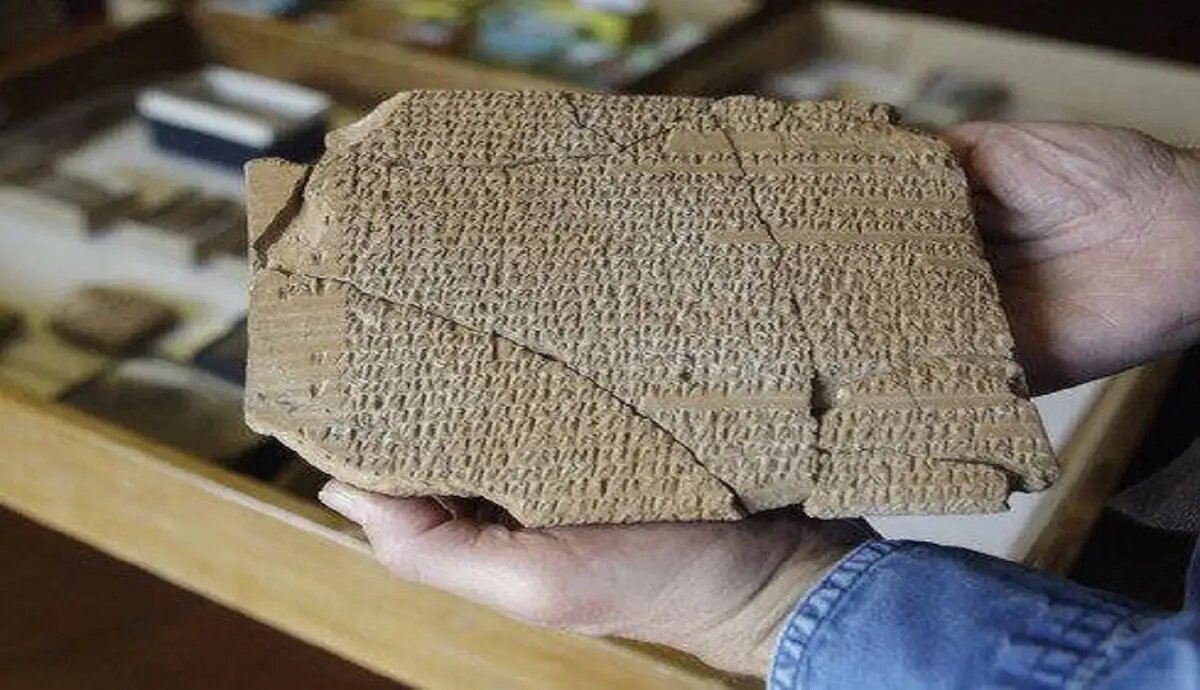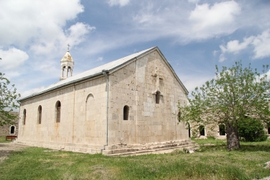Iran's Minister of Cultural Heritage, Tourism, and Handicrafts, Ezzatollah Zarghami, has announced the return of thousands of ancient clay tablets from the Achaemenid period from the US.
"I am going to welcome the president and the 3,506 historical tablets related to the Achaemenid period that are on his planet," the minister wrote on the platform X, formerly known as Twitter, on September 21.
"Continuously following-up gave results and finally nine boxes, each weighing 75kg and containing a valuable collection of the country's cultural and civilisational heritage, were delivered from America," he added.
Iranian President Ebrahim Raisi has also confirmed the return of these antiques upon his arrival in Tehran after a busy 4-day trip to New York, during which he participated in the summit of the UN General Assembly (UNGA).
President Raisi said that 84 years ago, it was agreed that these tablets should be provided to the Oriental Studies Center of the University of Chicago for three years. He further added “the scientists who worked on these tablets were Iranian, who studied them for more than 10 years, but after the prescribed three years, these tablets did not return to Iran, and thanks to God, with the follow-up, these tablets, which number more than 3,500 tablets, will return to the country and be delivered to the museums of the Islamic Republic."
According to the Iranian president, "the Americans should have fulfilled their commitment to return these tablets more than 80 years ago, which they refused, but during this trip, 3,500 tablets were returned, and I hope that the rest of these tablets will also return to the country as soon as possible with the follow-up of the country's officials."
The tablets are invaluable sources of information, revealing economic, social, and religious data about the Achaemenid Empire (550-330 BC). To date, hundreds of these tablets and fragments, which had been on loan from Iran to the Oriental Institute of the University of Chicago since 1935, have been returned to their home country. For instance, in 2019, Iran received 1,783 of these significant objects that had been kept at Chicago's Field Museum of Natural History and the University of Chicago's Oriental Institute.
In February 2018, after years of fluctuating circumstances, the fate of these ancient Persian artifacts was placed in the hands of the U.S. Supreme Court, which ruled in favor of Iran. Archaeologists associated with the University of Chicago unearthed these tablets in the 1930s during excavations in Persepolis, the ceremonial capital of the Persian Empire. However, the institute has since resumed collaborative work with colleagues in Iran, and the return of these tablets is part of an effort to strengthen ties between scholars in both countries, as mentioned by Gil Stein, the director of the Oriental Institute at the University of Chicago.
Persepolis served as the ceremonial capital of the Achaemenid Empire and stands as one of the most unique archaeological sites due to its distinctive architecture, urban planning, construction technology, and art. It's worth noting that Persepolis was burned by Alexander the Great in 330 BC, seemingly in retaliation for the Persian King Xerxes' earlier burning of the Greek City of Athens approximately 150 years prior.







 President Ilham Aliyev shed light on the evolving contours of the peace process with Armenia during an international conference in Baku this week. ...
President Ilham Aliyev shed light on the evolving contours of the peace process with Armenia during an international conference in Baku this week. ...
 Azerbaijan and Armenia started the process of demarcation of their border on Tuesday, with the installation of the first border markers based on ge...
Azerbaijan and Armenia started the process of demarcation of their border on Tuesday, with the installation of the first border markers based on ge...
 President Aliyev emphasized the critical role of the North-South Transport Corridor in fostering transport cooperation between Azerbaijan and Russi...
President Aliyev emphasized the critical role of the North-South Transport Corridor in fostering transport cooperation between Azerbaijan and Russi...
 Iran and Pakistan have signed eight cooperation documents in various fields, and agreed to strengthen ties to fight terrorism in the region.
Iran and Pakistan have signed eight cooperation documents in various fields, and agreed to strengthen ties to fight terrorism in the region.
 As the conflict between Ukraine and Russia escalates, the strategic importance of Kharkiv, Ukraine's second-largest city, has come sharply into focus.
As the conflict between Ukraine and Russia escalates, the strategic importance of Kharkiv, Ukraine's second-largest city, has come sharply into focus.



